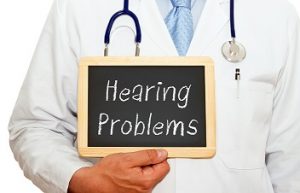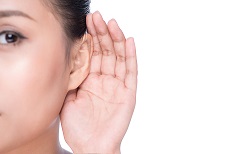What is Sensorineural Hearing Loss?
 What is Sensorineural Hearing Loss?
What is Sensorineural Hearing Loss?
It can be quite a hassle to experience hearing loss. Attending concerts, listening to symposiums, or even simply having an
interesting conversation may be difficult for those who have the condition. One case which you must be watchful of would
be Sensorinueral Hearing Loss. It may have a profound impact to your quality of hearing, since it usually affects the
innermost parts of the ear.
The Definition of Sensorineural Hearing Loss

This type of hearing loss indicates damage which can be found in the inner ear or cochlea. This very part of the ear has the hearing nerve. The condition also appears when the hairs of the inner ear are missing, hence making the cochlea even more susceptible to damage. Without the inner ear’s hairs, it would be a challenge for the brain to receive the electrical signals which are supposed to be transmitted by the very same hairs. Sound interpretation will turn out to be difficult.
What Causes this Condition?
There are many causes which lead to the condition of Sensorineural Hearing Loss. Some of them include old age, Meniere ’s disease, attribution to genetic factors, constant loud noises, Acoustic Neuroma (a tumor), infection of the inner ear, and more.
The body’s general deterioration comes with age, hence people above 65 years old may be prone to this specific hearing loss. Hearing loss may also result from Meniere ’s disease, since a build-up of excess fluids may take place. With excessive fluids, the inner ear may experience pressure and the organ’s balance may be compromised. Aside from this type of hearing loss, Tinnitus might also occur.
Another major reason which relates to this hearing loss would be repeated exposure to loud noises. Without the proper protection and care, permanent or temporary hearing loss may happen. When the skull gets fractured, or when a person has undergone ear surgery, then the risk of having this type of hearing loss may also be high.
Toxic medications, infectious diseases like Meningitis, and other unknown causes may also lead to the condition. If you’ve been prescribed with Ototoxic Medication, then you might be at risk of permanent or temporary damage in the cochlea.These types of medication usually involve antibiotics or chemotherapy drugs. To prevent any of the mentioned circumstances from happening, it’s best to regularly have your ears checked.
Available Treatments
There are three major types of treatments available for patients who have Sensorineural Hearing Loss. These include
Pharmacological, Surgical, and Management methods. Pharmaceutical solutions involve antioxidant vitamins, drug extractsof Ginko Biloba, and co-enzymes are being studied in relation to how they can generally improve their patients’ hearing.Stem cell researches and gene therapy are other options which are being looked into, towards treating the condition.
In other cases, surgeries or Cochlear Implants might be necessary. A battery-powered, electronic device will be placed in the inner ear to provide sound signals to the brain. Management solutions include lip-reading and the use of hearing aids. This type of hearing loss requires immediate attention from hearing care professionals. Should you suspect that you might have the condition, it’s best to contact the doctor today.